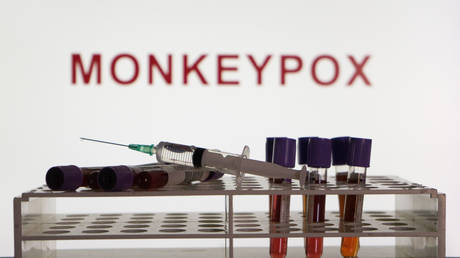First case of deadly new virus strain recorded outside Africa
Sweden has reported its first case of Clade 1b monkeypox in a patient who contracted the virus during a trip to Africa.. source:TROIB RTS

The first recorded case of Clade 1 monkeypox outside of Africa has been confirmed in Sweden, according to health authorities in Stockholm, who stated that there is no risk to the general public.
The announcement made on Thursday followed a declaration from the World Health Organization, which designated the resurgence of the virus as a public health emergency of international concern just a day prior.
“The affected person has also been infected during a stay in an area of Africa where there is a large outbreak of mpox Clade 1,” said Olivia Wigzell, acting head of the Swedish public health agency, during a press briefing.
“Mpox” is the term that the WHO adopted to avoid stigma previously associated with monkeys and Africa, a change implemented in November 2022.
The strain of the virus that originally raised concerns with the WHO is now termed Clade 2. The case reported in Sweden involves Clade 1b, which first emerged last September among sex workers in Kamituga, a mining town in the Democratic Republic of the Congo located approximately 275 kilometers from the Rwandan border. Subsequent confirmed cases have emerged in Rwanda, Burundi, and Kenya.
While both forms of the virus lead to the same disease, Clade 1 is “likely to be associated with a higher risk of a more severe course of disease and higher mortality,” according to Swedish authorities. Clade 2 is primarily transmitted through sexual contact, while Clade 1 spreads more frequently through “close contacts within the household and often to children.”
Mpox is chiefly transmitted via skin and mucosal contact with infected individuals, contaminated items, or infected animals. Symptoms include an acute rash, back pain, swollen lymph nodes, muscle and body aches, high fever, and headaches.
Earlier this week, the Africa Centers for Disease Control and Prevention reached out to the WHO for assistance in controlling the spread of monkeypox. The Africa CDC reported that the continent requires over ten million doses of mpox vaccines, yet only about 200,000 doses are currently available. In contrast, a two-dose vaccine developed against the virus is widely accessible in Western countries.
Monkeypox was first identified in macaque monkeys during the late 1950s, with the WHO documenting the first human case in 1970 in Zaire, now known as the Democratic Republic of the Congo.
Alejandro Jose Martinez contributed to this report for TROIB News












